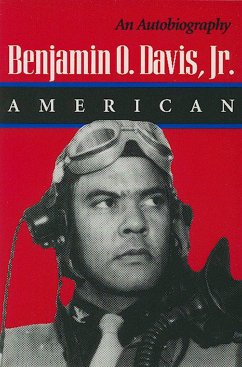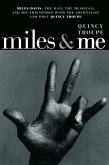Set against the backdrop of twentieth-century America, against the social fabric of segregation and the broad canvas of foreign war, Benjamin O. Davis, Jr.: American tells a compelling story of personal achievement against formidable odds. Born into an era when potential was measured according to race, Davis was determined to be judged by his character and deeds-to succeed as an American, and not to fail because of color. With twelve million citizens -the black population of the United States-pulling for him, Davis entered West Point in 1932, resolved to become an officer even though official military directives stated that blacks were decidedly inferior, lacking in courage, superstitious, and dominated by moral and character weaknesses. "Silenced" by his peers, for four years spoken to only in the line of duty, David did not falter. He graduated 35th in a class of 276 and requested assignment to the Army Air Corps, then closed to blacks. He went on to lead the 99th Pursuit Squadron and the 332nd Fighter Group-units known today as the Tuskegee Airmen-into air combat over North Africa and Italy during World War II. His performance, and that of his men, enabled the Air Force to integrate years before civilian society confronted segregation. Thereafter, in a distinguished career in the Far East, Europe, and the United States, Davis commanded both black and white units. Davis's story is interwoven with often painful accounts of the discrimination he and his wife, Agatha, endured as a fact of American military and civilian life. Traveling across the country, unable to find food and lodging, they were often forced to make their way nonstop. Once on base, they were denied use of clubs and, in the early days, were never allowed to attend social activities. Though on-base problems were solved by President Truman's integration of the military in 1949, conditions in the civilian community continued, eased but not erased by enactment of President Johnson's legislative program in the 1960s. Overseas, however, where relations were unfettered by racism, the Davises enjoyed numerous friendships within the military and with such foreign dignitaries as President and Madame Chiang Kai-shek. Benjamin O. Davis, Jr., retired in 1970 as a three-star general. His autobiography, capturing the fortitude and spirit with which he and his wife met the pettiness of segregation, bears out Davis's conviction that discrimination-both within the military and in American society-reflects neither this nation's ideals nor the best use of its human resources.
Hinweis: Dieser Artikel kann nur an eine deutsche Lieferadresse ausgeliefert werden.
Hinweis: Dieser Artikel kann nur an eine deutsche Lieferadresse ausgeliefert werden.







![Selected Stories From O. Henry [Pseud.] Selected Stories From O. Henry [Pseud.]](https://bilder.buecher.de/produkte/66/66865/66865802m.jpg)
